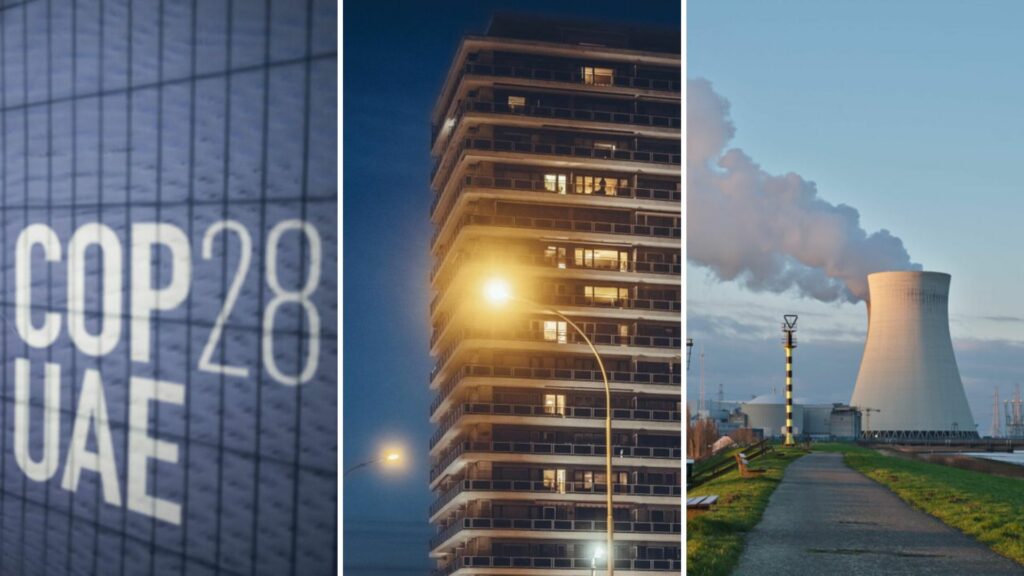From the get-go the COP28 climate negotiations in Dubai have raised questions. Sceptics have challenged whether a nation famed for rising from the sand on the back of its oil fortunes can lead discussions about pulling out of fossil fuels.
The doubts were confirmed as COP President Sultan Al Jaber – head of the Abu Dhabi oil company – contradicted scientific consensus by denying that phasing out fossil fuels is necessary to limit global warming. Host nation aside, the global appetite to slash dependence on hydrocarbons has been undermined by recent economic turbulence, which has made climate the inevitable loser in the toss-up against a cost-of-living crisis.
But the two are not unrelated, as activists have been at pains to point out. In fact, it is only through coming to terms with our fossil fuel addiction that we can address the climate, economic, and social inequalities that shape the sorry world as we know it. In her most recent book, Cambridge professor of political economy Helen Thompson makes a compelling case to understand geopolitics and global monetary policy through the struggle for oil supremacy.
So it is curious that in the final hour COP28 delivered a commitment to 'transition away from fossil fuels' – a text that the event's organisers are eager to portray as a resounding success, though those more attuned to the details of climate policy have highlighted potential shortcomings.
The document pledges to triple renewable energies, an area in which many nations are now investing heavily. It also makes clear the aim to double energy efficiency – to which we devote far less attention. Sobriety is not a concept that galvanises powers to change; in an energy context it comes with the certainty of concessions and making do with less. In a culture of material consumption and holidays around the world, this sounds rather unrewarding.
Then again, regaining control of our own energy use is an aim few would argue against, providing we have the means to pay for it. In Belgium, this has led to the overdue realisation that keeping our nuclear energy capacity might not be such a bad idea. To this end, an agreement was reached this morning to extend the life of the two youngest reactors, and also open the door to investment in the next generation of technology and expertise.
There is no doubt that the challenges posed by climate breakdown are coming soon. But the future arguably looks a little less gloomy today than yesterday.
Belgium in Brief is a free roundup of the top stories to get you through your coffee break conversations. To receive it straight to your inbox every day, sign up below:
1. 'Staggering disparity' between treatment of Ukrainian refugees and asylum seekers in Belgium
The welcome given to Ukrainian refugees in Belgium greatly contrasts the treatment afforded to other asylum seekers upon their arrival, new research by the University of Antwerp has revealed. Read more.
2. 'Mission accomplished': Belgium signs off its nuclear energy future
After 19 months of negotiations between the Belgian State and the operator of Belgium's nuclear power stations, Prime Minister Alexander De Croo and Energy Minister Tinne Van der Straeten concluded negotiations with Engie-Electrabel on Wednesday. Read more.
3. Thousands of Europeans gather in Brussels to protest 'EU-mandated austerity'
Thousands of trade unionists from across Europe gathered in Brussels yesterday for a 'Strike Against Austerity' ahead of budget discussions at an EU Summit this week. Read more.
4. Metro 3: Demolition of Palais du Midi interior should start 'mid-2025'
As the interior of the Palais du Midi building will be dismantled as part of the Metro 3 Line project, transport company STIB organised an information meeting regarding the next steps. Read more.
5. Belgium's Princess Delphine only wants 'respect, not money'
Princess Delphine of Belgium, the illegitimate daughter of former King Albert II, has spoken out over her mistreatment in royal functions when compared to her half-siblings. Read more.
6. Spreading Christmas cheer: Festive trams take to the tracks in Brussels
People passing through the Louise shopping district of Brussels or near the Royal Palace may have spotted a merry sight on the tram tracks. Brussels' Christmas tram has come to town to spread holiday cheer. Read more.
7. Windows of a world gone by
"We have Art Nouveau, the Horta period, but nothing special from the great days of stained glass.” Read more.


